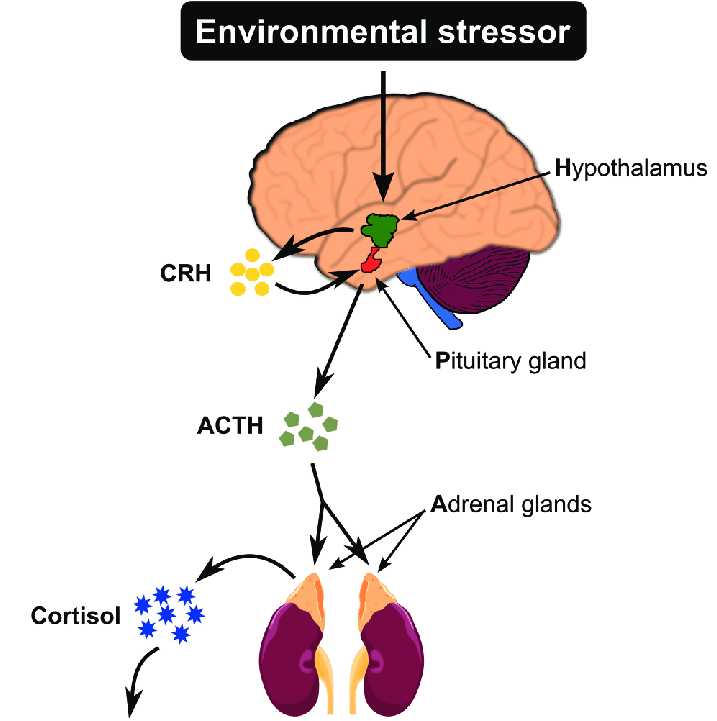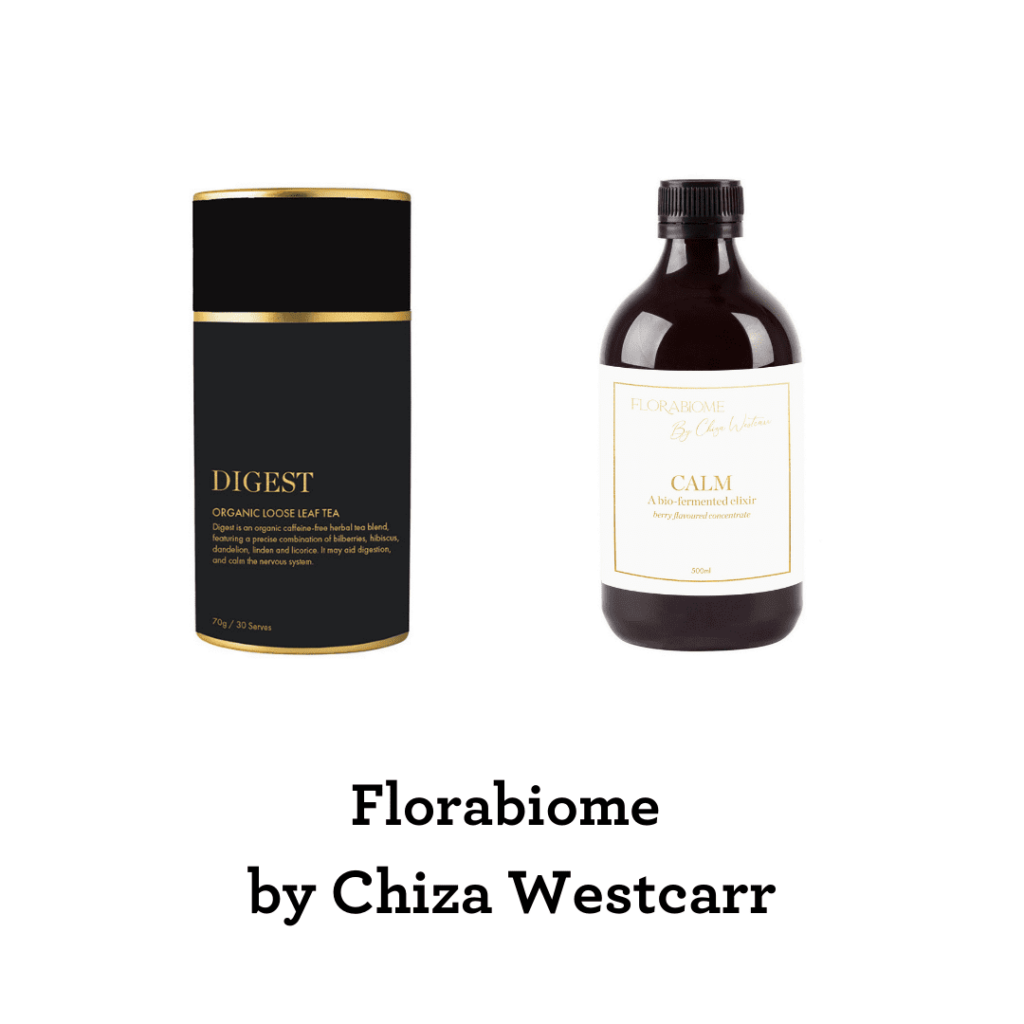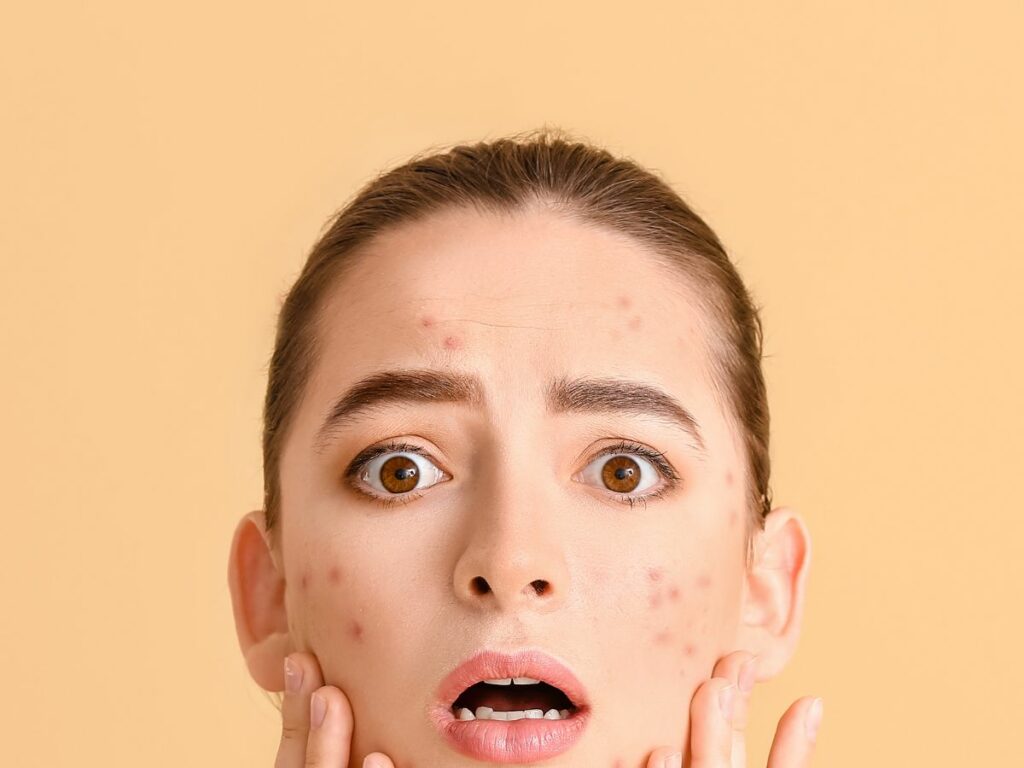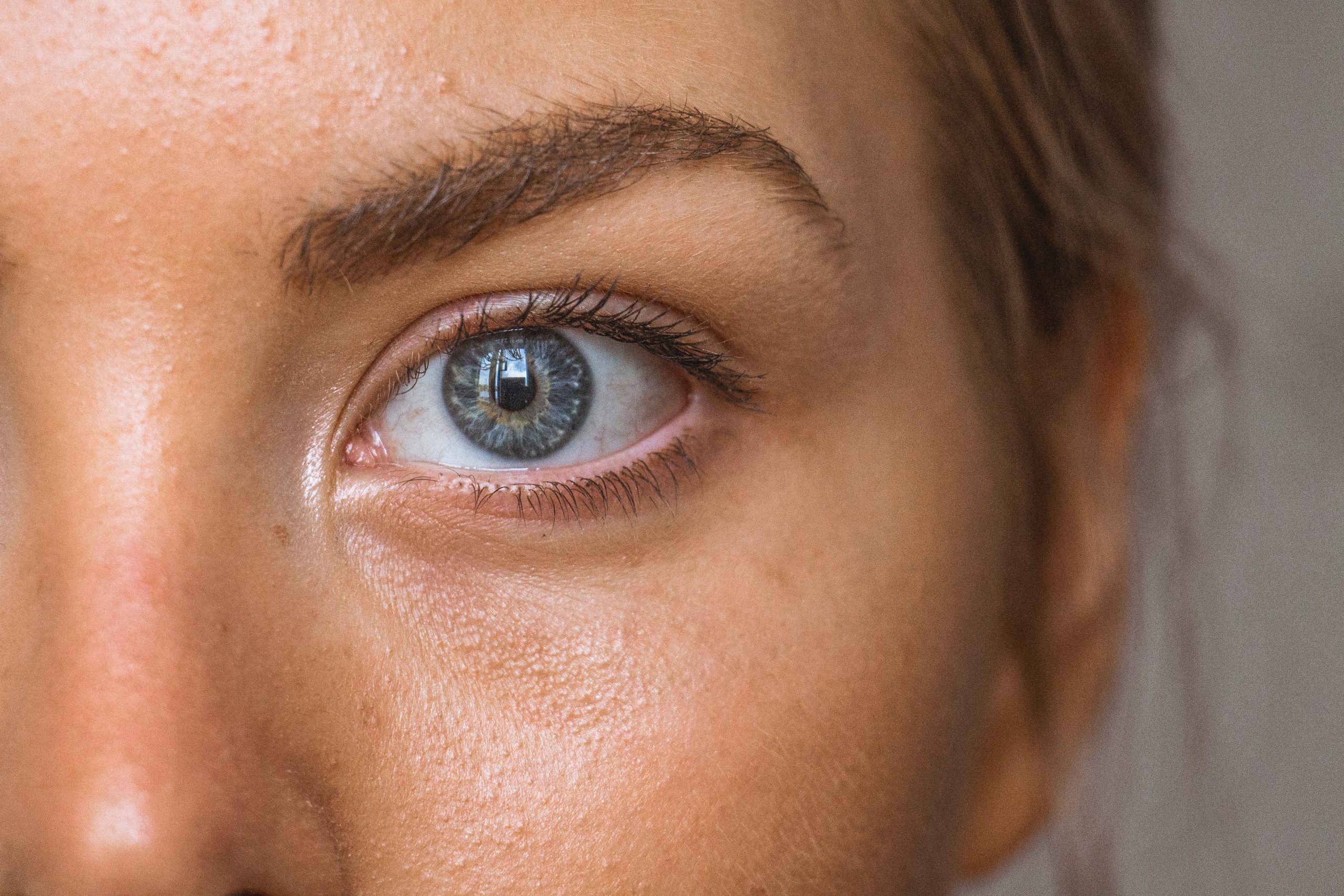Imagine this – your client has been coming to you for regular treatments over the past six months, presenting with an inflammatory skin condition.
The results are slow and unsatisfactory; you’ve addressed the outward symptoms, you’ve discussed nutrition, but what else could be standing in the way of the results you both want to achieve?
Could it be as simple, or as complex, as stress?
While gut health and nutrition are now well understood in the beauty industry, stress is often overlooked. However, new research highlights the considerable impact it plays on inflammation within the body and how this affects skin health.
We were lucky enough to welcome Chiza Westcarr, Founder of The Nutritional Skincare Academy, to discuss the brain-skin connection’s fascinating relationship. As skincare professionals, understanding the impact of stress on skin health is vital, and Chiza walked us through the most up to date research on some key factors.
In this blog, we want to summarise these main points in the hope that it will help you adjust to the need to approach skin health holistically and inspire you to always dig deeper.
The Major Components of the Stress Response
So, what exactly is stress? We know how it feels but how to put it into words?
It is a physical, mental or emotional pressure or tension caused when a person perceives that the demands they are faced with exceed their ability to cope.
Stress is ultimately a natural bodily reaction when we perceive a threat, be it real or imagined.
Of course, sometimes stress can be a positive thing – termed Eustress; this type of stress motivates and can increase performance and drive.
The antithesis to Eustress is Distress when the individual is unable to cope.
Stress is either acute – lasts for a short amount of time – or chronic – lasts for long periods of time.
What is Acute Stress?
The acute stress response is more commonly known as the fight or flight response.
The body reacts to the perceived threat by releasing a surge of hormones, which activates the sympathetic nervous system. In turn, adrenaline is released, and the body prepares to fight or run!
It is normal and not necessarily damaging. However, chronic stress is another matter!
Long term, repeated stress activates a system in the body called the HPA Axis. This describes the interaction between the hypothalamus, pituitary gland and adrenal glands when triggered by stress. This diagram shows the knock-on effect that occurs when stress presents itself:

The adrenal glands consist of the adrenal medulla and the adrenal cortex, both of which produce very different hormones.
The adrenal medulla produces adrenaline type hormones to stage the fight or flight response.
This releases the stress hormone; cortisol. This causes stored glucose from the liver to be released in order to give energy. Biologically, this is needed to escape from the threat we’ve encountered, but if that threat isn’t there, and we experience chronic stress, the risk of developing diabetes is high.
When it lasts for long periods, and cortisol is continuously being released, the immune system becomes suppressed and makes us more susceptible to infection.
As you can see, the impact stress has on long term health is enormous.
The Connection between Stress and Inflammatory Skin Conditions
So, how does stress influence the health of the skin?
Psychodermatology is the field of medicine that studies the connection between the mind and the body. Studies exploring the brain-skin connection have shown that the skin is both a target organ of stress as well as a perceiver of stress.
When the skin is targeted by stress, it produces neuroendocrine, neurotransmitter and neuropeptide signals, deeply affecting the skin’s biology.
The nervous system and the skin are intrinsically linked, and nerve cells, immune cells, skin cells and signalling molecules are involved in the cross-talk between them. These biological functions significantly impact the skin’s barrier function and can induce or worsen various skin disorders.
The Impact of Stress on Skin
The numbers are clear when it comes to just how stress affects the skin. 30-40% of people seeking help in treating skin disorders had an underlying psychiatric disorder.
Approximately 50% of people with acne report an emotional trigger to their breakouts.
At least 80% of those with eczema report psychological stress aggravates or brings about their itch.
More than 90% of those with rosacea say stress triggers a flare-up, and about 100% of those with hyperhidrosis say emotions trigger their reaction!
These stats show the overwhelming evidence that stress and inflammatory skin conditions often go hand in hand.
The Brain-Skin Connection
Now, this is fascinating – did you know that the skin and brain both stem from the same origin embryologically?
They are essentially formed from the same group of cells, meaning the brain and the skin have a fundamental physiological connection! That’s mind-blowing, isn’t it?!
Research has shown the complexity of this connection whereby an interplay of neurologic, endocrine, immune and cutaneous systems occurs between the brain and the skin.
How does the your skin connect with the skin?
Interestingly, it would seem that the skin may have its own central HPA axis (hypothalamic-pituitary-adrenal axis), which coordinates peripheral stress responses with the body’s central HPA axis.
This emerging research highlights the deep connection between the brain and the skin and how understanding it can help in our treatment of inflammatory skin conditions.
How to Manage Stress
Chiza discusses ways to manage the stress that so many people encounter in their lives with poignant examples. Here are some ideas you could share with your clients to help them begin their journey:
- Re-align unrealistic goals – accept that things can’t always be perfect. Allow yourself to win. Make your goal motivating and a joy to follow in its progression.
- Modify your expectations – don’t expect others to be perfect all the time.
- Re-prioritising – take time to practise self-care. Treat every day as a new day, with a fresh start when everything is possible.
- Delegate tasks or chores to others – you don’t need to do everything alone. Learn to ask for help.
- Change the situation or learn to accept it without feeling stressed.
Ways to promote the relaxation response:
Movement
Exercise regularly – it might be a walk every morning or a swim.
Breath work
Deep abdominal breathing has been shown to have a significant impact on the stress response.
Mindfulness meditation
Yoga and tai chi are wonderful relaxation techniques.
Diet
Eating a balanced, nourishing diet is clear when it comes to physical health; however, the connection between food and mental health is emerging with exciting results. People who change their diets to fresh vegetables and fruit, whole grains and healthy fats experience a better mood and improved skin. This nutrition will decrease inflammation, oxidative stress and hippocampal volume (stability of the hippocampus is linked to mental clarity). Foods containing Vitamins B, C and magnesium are vital for stress management.
Sleep
It is essential for managing stress as well as preventing disease. The need to wind down before bed, switch off devices (blue light and sleep don’t mix!), and get 7+ hours of sleep each night are essential in managing stress.
As Chiza so eloquently puts it, 80% of stress management is accomplished with the first 20% of effort.
Ultimately, we need to decide to make a change – that decision to take one new daily step goes a long way in managing stress-related symptoms.
Chiza’s New Venture
As a renowned educator with years of experience and a passion for skin health, Chiza has just launched two wonderful products to support the intricate balance between the skin, gut and brain.

Currently consisting of 2 products: A herbal tea, ‘Digest’, to aid digestion and calm the nervous system and a bio-fermented elixir containing stress modulating ingredients, ‘Calm’. These products have been produced exclusively for the industry.
If you want to dig a little deeper into this fascinating topic, sit back and enjoy the full video recording of Chiza’s presentation here:
So, there you have it. The need to keep learning within our profession is vital to providing your clients with the skin they desire.
I hope this blog convinces you to delve further.
We love sharing our passion for healthy and beautiful skin with our clients and love seeing their successes. That’s what inspires us daily.
Vital Plus customers benefit from ongoing support, not just technical, but also in marketing, management, Future Beauty Talks, setting up promotions and many activities to enhance knowledge, industry awareness and financial success. Supporting you in running a thriving beauty business is our purpose.
For more details about what we can offer you and your business, don’t hesitate to contact us: 1300 437 638
FAQs:
Q: How does stress affect my skin?
A: Stress can have a significant impact on your skin health. When you are under stress, your body produces a hormone called cortisol, which can lead to increased oil production in the skin. This excess oil can clog pores and cause acne breakouts. Moreover, stress can weaken the skin’s natural barrier function, making it more susceptible to environmental irritants and pollutants. Consequently, this may lead to skin sensitivity, redness, and inflammation.
Q: Can stress cause skin conditions like eczema and psoriasis?
A: Yes, chronic stress can exacerbate or trigger skin conditions like eczema and psoriasis. Stress disrupts the immune system, leading to increased inflammation throughout the body. For individuals with pre-existing skin conditions, this inflammation can worsen the symptoms and make the skin more prone to flare-ups. Managing stress through relaxation techniques, such as meditation or yoga, can help improve the overall skin condition.
Q: Does stress accelerate the aging process of the skin?
A: It can indeed accelerate the aging process of the skin. Cortisol, the hormone in charge, breaks down collagen and elastin, essential proteins responsible for maintaining the skin’s firmness and elasticity. As a result, chronic stress can lead to the development of fine lines, wrinkles, and sagging skin. Furthermore, stressed individuals may engage in harmful coping behaviors like smoking, excessive alcohol consumption, or poor dietary habits, which can further contribute to premature aging.
Q: How can I protect my skin from the effects of stress?
A: To protect your skin from the negative effects of stress, it’s essential to adopt a holistic approach to self-care and stress management. Ensure you get enough sleep, as rest is crucial for skin repair and rejuvenation. Regular exercise can also help reduce stress and improve blood circulation, promoting healthier skin. A balanced diet rich in antioxidants, vitamins, and minerals can provide the necessary nutrients to support your skin’s health. Additionally, practicing stress-reducing techniques, such as mindfulness, deep breathing, and spending time in nature, can positively impact your skin.
Q: Are there skincare products that can help combat stress-related skin issues?
A: Yes, there are skincare products formulated to address stress-related skin issues. Look for products that contain ingredients like antioxidants (vitamin C, E, and green tea extract) to protect the skin from oxidative stress. Hyaluronic acid and ceramides can help restore the skin’s barrier function and retain moisture, reducing sensitivity and irritation. Incorporating products with calming ingredients like chamomile or aloe vera can soothe and reduce inflammation. However, remember that while skincare products can be helpful, managing stress at its source is crucial for maintaining healthy skin in the long run.


